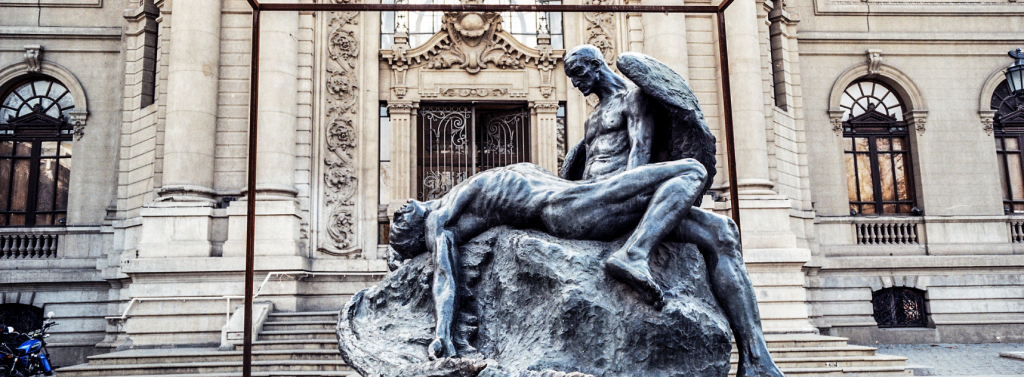Aeronautics has its origin in the imagination of men; when we study the historical events of the various civilizations around the world, we can realize that the intention to fly (at least mythologically) has accompanied various cultures since its inception. Today we expose a famous legend of the Hellenic culture, which tells the story of an inventor who managed to escape from his prison, together with his son, through the partially successful execution of their flight.
Contents
The great inventor of Athens
According to legend, Daedalus, father of Icarus, was a great inventor, architect, and sculptor. He was the father of carpentry and all the tools of this discipline, to him is attributed the design of the first bathhouse and the first dance floor, the accuracy of his sculptures was such that they could be confused with real people. His fame led him to become an egomaniacal character. His sister had left her son Perdix, under the care of Daedalus, so that he could learn the mechanical arts from him. Perdix turned out to be a great apprentice and also a clever inventor, like his uncle. But Daedalus’ selfishness and zeal to maintain the position of the best Athenian inventor led him to try the murder of his own nephew by pushing him from the top of the temple of Athena, the goddess; when he saw such atrocity, he changed the fortune of the young man by transforming him into a bird and banished Daedalus.
Daedalus in Crete
After the attempt to assassinate his nephew Perdix, Daedalus is expelled from Athens. This is how the inventor arrived in Crete where King Minos received him hospitably. Because of his reputation, Minos put Daedalus under his personal service and also as an advisor to the kingdom. The inventor created diverse and ingenious toys for the King’s children, invented sails for Cretan ships, displacing the use of oars; some legends also say he created a giant bronze automaton that protected Crete from enemies; with each invention, Daedalus reduced human limitations that separated mortals from gods.
The big mistake of Daedalus
Legend has it that King Minos refused to sacrifice his favorite bull to Poseidon, the god angry at this offence, cursed the King’s wife, Pasiphae, causing her to fall in love with the bull that Minos refused to sacrifice to him. Pasiphae entrusted Daedalus with his zoophilic passion and the inventor resolved to help him satisfy his desire by building a wooden cow where Pasiphae was introduced, and the bull, deceived by the realism of the cow, begat a son to the Queen. At birth, the creature had hooves on the feet, tail and head of a bull, the rest of the body was very similar to that of a man, and he was then called Minotaur.
The King’s Punishment
Minos, knowing what had happened, blamed Daedalus for helping Pasipha to fulfill his perversion. He commissioned the inventor to build the famous labyrinth of Crete where the result of his wife’s perversion would be hidden. When the labyrinth was finished and so that no one would know about the Minotaur and about the zoophilic adultery of Pasiphae, Minos imprisoned Daedalus together with his son Icarus in the highest tower of Crete.
Escape thanks to Aeronautics
Being in the highest tower, Daedalus observed and studied the flight of birds, from this study he conceived the idea of escaping from his prison with his son Icarus, flying. To perform the feat the inventor devised the development of two pairs of wings made of bird feathers joined together with wax from the candles they had at hand in his prison. Together with his son, the artisan dedicated several days to collect the feathers that fell from the birds, to later join them and make their wings.
When the pairs of wings were ready and father and son were ready to start their escape, Daedalus gave two warnings to Icarus: not to fly too low, for the feathers would get soaked by the seawater, gaining weight and ending up falling; and not to fly too high, for the heat of the sun would melt the wax of the wings, destroying them. So they had to keep an average height. So, they jumped from the tower being, according to the legend, the first men to fly. However, Icarus did not heed his father’s warnings of wanting to fly as high as possible, so his wings were destroyed and Icarus died when he fell from the heights. In antiquity, this “aeronautical” story was enjoyed and today it is not very convincing, however, we have not stopped inventing stories around the experience of “flying” as you can see in our article 5 recommended aviation films.
What do you think about this topic? Do you know other myths from different cultures that tell of the first flight of humanity?
If you have any doubt or question you can contact us or write your query in the comments section below.
Image by Gaspar Abrilot via Flickr under Creative Commons license.
